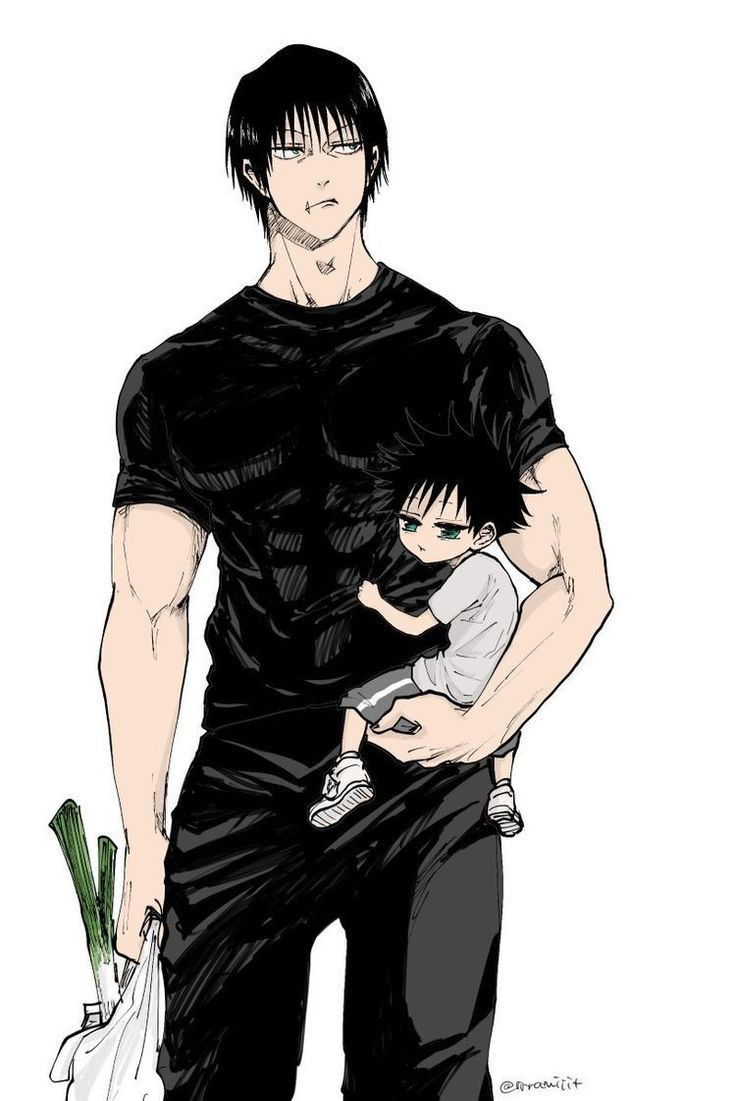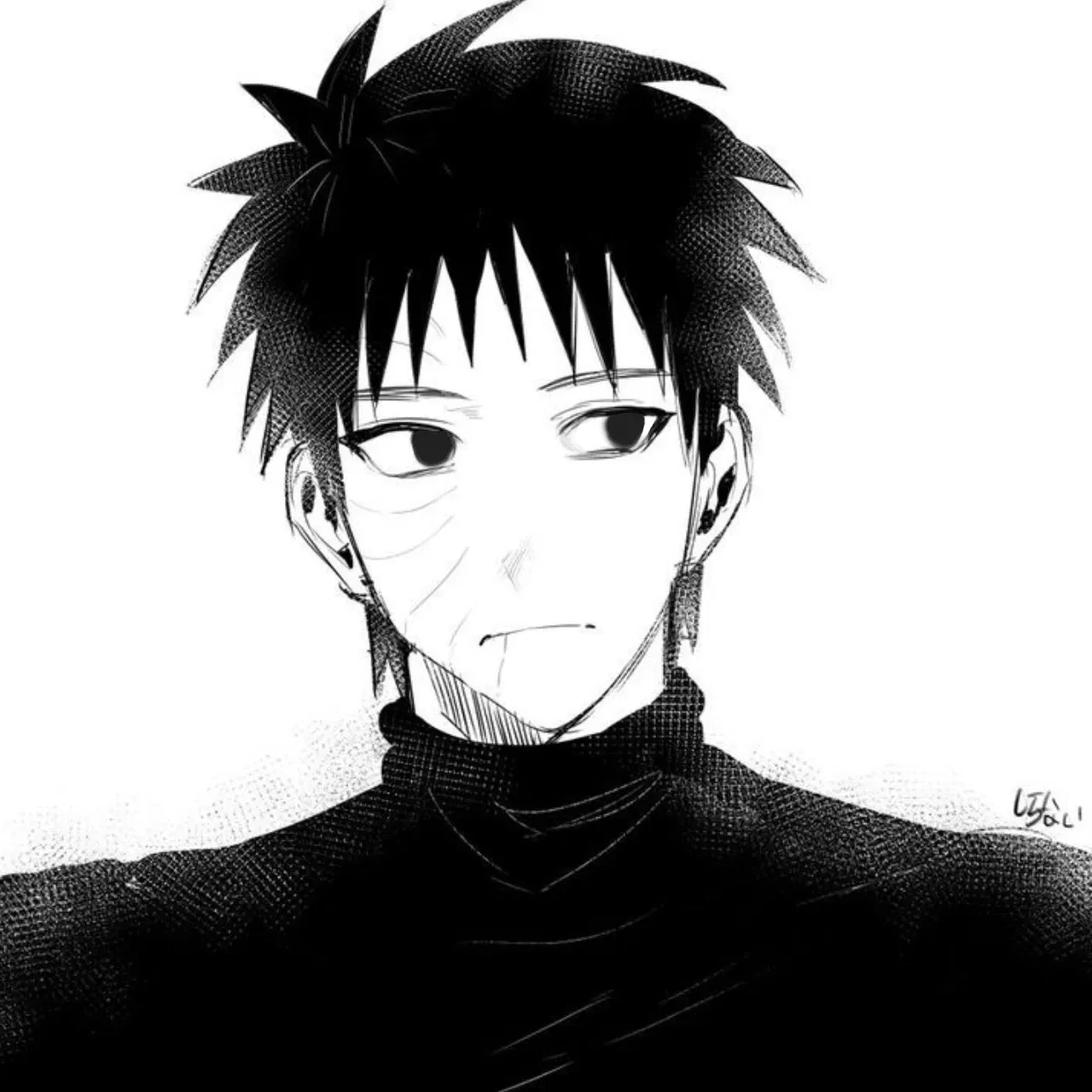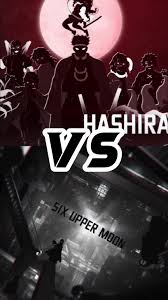Luka Alnst: The Enigmatic Star of ALNST

The Unveiling of Luka Alnst: A Phenomenon Born for the Stage
In the ever-evolving landscape of digital entertainment, certain characters transcend their fictional origins to become cultural touchstones. Among them stands Luka Alnst, a name synonymous with captivating performances, complex motivations, and a profound impact on the narrative of the acclaimed animated series, Alien Stage. Far more than just a contestant in a brutal extraterrestrial competition, Luka Alnst embodies themes of ambition, control, and the very essence of what it means to be "human" in a manufactured world. His journey through the ALNST competition, from his enigmatic introduction to his climactic victories, has captivated audiences worldwide, sparking extensive discussions, theories, and a dedicated fandom. The Alien Stage series, created by VIVINOS in collaboration with QMENG and produced by STUDIO LICO, plunges viewers into a universe where "pet-humans" perform for alien entertainment, vying for survival and glory. At the heart of this thrilling, often dark, narrative is Luka, whose presence casts a long shadow over every round he participates in. To truly understand the phenomenon of Luka Alnst, one must delve beyond the spotlight and into the meticulously crafted lore that defines his existence, exploring his origins, his intricate personality, and the indelible mark he leaves on the Alien Stage universe.
Unpacking the Origins: Who is Luka Alnst?
The genesis of Luka Alnst is not one of natural birth but of deliberate creation, a fact that underpins much of his character's psychological depth and tragic undertones. Unlike many other contestants, Luka was "born this way" – a product of genetic manipulation, meticulously crafted by his "father," Heperu, with the singular purpose of excelling and winning the ALNST competition. This engineered origin is a crucial element, setting him apart and immediately raising questions about free will, identity, and the ethical boundaries of creation. Luka's early life, as revealed through various in-series materials like the Anakt Garden book, was far from ordinary. He was raised in a controlled environment, likely subjected to rigorous training designed to strip him of normal human fears and emotions. It is mentioned that he was trained to overcome fear from a young age, with Heperu even claiming this emotional suppression as the secret to Luka's success. This training included methods aimed at maintaining his composure, such as monitoring his heart rate to keep it within a narrow, controlled range (70-90 bpm) – a seemingly innocuous detail that hints at the pervasive control exerted over him. The dehumanizing aspect of this upbringing is evident, with Luka often described as being controlled "like a puppet" outside of the stage, his humanity arguably stolen in the relentless pursuit of victory. Physically, Luka possesses distinct features that further underscore his unique background. He is depicted with unkempt blond hair and striking yellow eyes. More tellingly, his fingertips, from the midsection onwards, are a vibrant purple hue. This seemingly aesthetic detail is, in fact, a poignant indicator of his engineered physiology: it's confirmed that Luka suffers from congenital heart disease, a condition that explains his purple fingertips, indicating cyanosis. The sound of a heartbeat, subtly integrated into the music of certain rounds, further alludes to this underlying vulnerability, a stark contrast to his seemingly invincible stage presence. These physical traits, combined with his confirmed asthma and chronic migraines, paint a picture of a being designed for perfection but burdened by inherent flaws. His status as a "pet-human" in a world where humans serve as pets for aliens, combined with his artificial genesis, creates a profound internal conflict. Luka is, in essence, a masterpiece of engineering, yet confined by the very design that grants him unparalleled abilities. This foundational lore is essential to understanding the complex character that is Luka Alnst.
The Dual Facets of Luka Alnst: Persona and Reality
One of the most compelling aspects of Luka Alnst is the stark dichotomy between his public persona and his inner reality. On stage, Luka is the epitome of princely charm and charisma. He exudes an almost ethereal elegance, captivating audiences with his perfect poise, captivating voice, and masterful stage control. This princely demeanor is a meticulously crafted facade, designed to lure in viewers and judges alike. His performances are not merely displays of talent; they are strategic maneuvers, meticulously planned to ensure victory. However, beneath this polished exterior lies a far more complex and often unsettling truth. Luka is revealed to be a cold, manipulative, and insensitive individual. He possesses a cunning intellect, going so far as to exploit the grief and emotions of other contestants to undermine their performances. His desire for exclusivity and his singular focus on winning drive his actions, often without remorse or pity for those he defeats or even indirectly causes harm to. This calculated cruelty, particularly evident in how he manipulates others' vulnerabilities, adds layers of moral ambiguity to his character. He is portrayed as someone who believes he feels no guilt for those who are eliminated for his win. This emotional detachment is a direct consequence of his upbringing. Having been trained to suppress fear and potentially other emotions from a young age, Luka often struggles with genuine connection and understanding of human sentiment. Anecdotes from his childhood in Anakt Garden suggest he was isolated, perceived as emotionless, and feared by other children. While he reportedly had an early friendship with Hyunwoo, this relationship ended tragically, further cementing his perceived isolation and the emotional barriers he constructs. Despite this internal struggle, there are glimpses of a more vulnerable side, particularly in fan theories and character interactions, suggesting that his controlled emotions might occasionally crack under pressure or in moments of genuine connection. The stage, ironically, is described as Luka's "only space where he can show his presence and initiative," implying a degree of freedom and self-expression within the confines of his engineered purpose. This duality – the perfect performer and the emotionally stunted individual – makes Luka Alnst a fascinating study in the psychological costs of forced perfection.
Dominating the ALNST Stage: Luka's Unparalleled Achievements
The "Alien Stage" competition, or ALNST, is the arena where Luka Alnst truly shines, solidifying his reputation as "the greatest performer." His record within the competition is nothing short of legendary. He previously won the 49th season, a significant achievement that propelled him into the limelight and earned him widespread recognition, including appearances in various TV shows and commercials. This past victory, however, did not sate his ambition; instead, it fueled his desire for even greater success. In the narrative context of the series, Luka is a formidable contender, often mentioned as a leading candidate in the 50th season, praised for his singing, dancing, and unparalleled stage control. His performances are not just technically perfect; they are strategically executed to maximize his impact and secure his advance. For instance, during Round 5, he performs his signature song, "Ruler of My Heart," alongside fellow contestant Mizi. This performance is notable not just for its musicality but for Luka's calculated manipulation of Mizi's grief over Sua's death, demonstrating his willingness to leverage emotional vulnerabilities for competitive advantage. Luka's competitive drive is intense. He is often seen as being up for "two consecutive wins," a testament to his consistent excellence and the high expectations placed upon him, both by his creator and by the audience within the Alien Stage universe. His ability to maintain a calm demeanor even in life-or-death situations, attributed to his rigorous training to overcome fear, gives him a significant edge over his opponents. This composure, even when facing the possibility of death, highlights his exceptional control and unwavering focus on victory. Beyond "Ruler of My Heart," Luka's musical repertoire within Alien Stage includes covers like "Sweet Dream (Luka.ver)," further showcasing his vocal prowess and versatility. His impact on the competition is undeniable, and his presence elevates the stakes, making every round he participates in a high-tension spectacle. The fans of the series keenly follow his every move, debating his strategies and analyzing his performances, recognizing him as a central figure in the ALNST narrative.
The Web of Relationships: Luka Alnst and His Connections
Despite his often-cold and manipulative nature, Luka Alnst is not an isolated figure. His journey is intertwined with several key characters within the Alien Stage universe, and these relationships, however strained or calculated, offer further insight into his complex personality. One of his most significant, and tragically complicated, relationships is with Hyuna. They were close during their time at Anakt Garden, a shared past that binds them. However, a pivotal and devastating event fractured this connection: Luka was involved in the death of Hyuna's younger brother, Hyunwoo. While the exact circumstances are shrouded in ambiguity, this incident resulted in Hyuna harboring deep feelings of love and hate towards Luka. For Hyuna, Luka is both a childhood friend and the "only living member of the 49th Anaktgarden class," yet simultaneously "her mortal enemy who killed her younger brother." This profound emotional conflict makes their interactions particularly poignant and reveals the lasting impact of Luka's actions. Hyunwoo was reportedly Luka's first friend, making the circumstances of his death even more tragic and formative for Luka's emotional development (or lack thereof). His interactions with other contestants, such as Mizi and Till, primarily occur within the competitive framework of ALNST. As previously mentioned, Luka exploited Mizi's grief over Sua's death in Round 5, showcasing his strategic ruthlessness. His relationship with Till is also adversarial, particularly given Till's role as another prominent contender. Luka's desire for dominance extends to these competitors, seeing them primarily as obstacles to his ultimate victory. The fan community often debates these character dynamics, analyzing how Luka's presence affects others and how they, in turn, react to his calculated demeanor. Beyond individual relationships, Luka's most profound connection might be with his creator and "father," Heperu. Heperu designed Luka for the sole purpose of winning and performing, controlling him "like a puppet" outside of the stage. This relationship highlights themes of ownership, expectation, and the burden of living up to an imposed destiny. Heperu's high expectations and the "abusive" nature of Luka's training reveal the extent of the control exerted over him, shaping him into the formidable yet emotionally isolated individual he is. This controlling dynamic suggests that much of Luka's manipulative behavior is a learned survival mechanism within a system designed to extract peak performance at any cost. These intricate relationships form a crucial backdrop to Luka's character, demonstrating that even a seemingly emotionless and manipulative figure is deeply embedded in a network of complex, often painful, human (and alien) connections.
Thematic Resonance: What Luka Alnst Represents
Beyond his captivating performances and complex backstory, Luka Alnst serves as a potent vehicle for exploring several profound themes within the Alien Stage narrative. His character invites viewers to reflect on questions that extend far beyond the confines of a fictional competition. Luka is engineered for perfection. His entire existence is predicated on winning, on being "the greatest performer." This relentless pursuit of excellence, however, comes at a significant cost: his emotional development and genuine human connection are sacrificed on the altar of victory. He is trained to overcome fear, to maintain a rigid composure, and to prioritize success above all else. This theme resonates deeply in a society often obsessed with achievement, forcing us to question what we are willing to compromise for the sake of being "the best." Luka's purple fingertips and underlying health issues serve as a constant, subtle reminder that even engineered perfection carries inherent vulnerabilities and burdens. As a genetically manipulated "pet-human" controlled by his "father," Heperu, Luka epitomizes the struggle between control and free will. He is a puppet off-stage, his actions dictated by external forces, yet on stage, he finds a paradoxical sense of initiative and self-expression. This dichotomy explores the extent to which individuals can truly be free when their very essence has been manufactured or heavily influenced by others. Does Luka genuinely want to win, or is it an ingrained program? The series hints at moments where his internal struggles surface, suggesting a nascent desire for something beyond his predetermined purpose. Luka's character challenges traditional notions of humanity. If he is devoid of fear and seemingly lacks empathy, is he truly human? The series delves into the complexities of emotion, or the suppression thereof. His coldness and manipulative tendencies are not innate malice but rather a consequence of his upbringing. By showcasing a character who struggles with emotions that are fundamental to the human experience, Alien Stage invites viewers to ponder what truly defines humanity – is it biological origin, emotional capacity, or the capacity for choice? His obsessive focus on heart rates, instilled during his training, is a poignant symbol of his attempt to quantify and control the very biological responses that define human experience, highlighting his detachment from the qualitative aspects of emotion. Luka's unwavering ambition is a central driving force. He will use any means necessary to secure victory, including exploiting the vulnerabilities of his opponents. This raises significant moral questions about the boundaries of competition and whether the end justifies the means. Is his ruthlessness a flaw, or simply a necessary adaptation in a brutal environment? The series subtly critiques the pressures of hyper-competition and the ethical compromises individuals might make in pursuit of their goals. Through Luka Alnst, Alien Stage transcends simple entertainment, offering a rich tapestry of thematic explorations that resonate with contemporary anxieties about identity, control, and the relentless pursuit of success. His character is a microcosm of the larger existential questions posed by the series itself.
The Enduring Legacy of Luka Alnst: Fandom and Impact
The character of Luka Alnst has cultivated a significant and passionate following within the Alien Stage fandom, solidifying his status as one of the series' most iconic and debated figures. His complex personality, striking design, and pivotal role in the narrative have sparked a vibrant community of fans who engage with his character on multiple levels. One of the most evident aspects of Luka's enduring legacy is the sheer volume of fan-created content. From intricate fan art that captures his princely yet melancholic essence to elaborate fan fiction exploring alternative backstories or deeper emotional arcs, the creativity inspired by Luka is immense. Social media platforms like TikTok, Pinterest, and Reddit are replete with discussions, edits, and analyses dedicated to him. Fans engage in "Luka daily facts" and share their "Luka Alien Stage" performance insights, dissecting his every move and motivation. The popularity of "Luka ALNST" merchandise, such as plush dolls and keychains, further underscores his commercial appeal and the fans' desire to physically connect with the character. Fan theories surrounding Luka are particularly prevalent, with viewers constantly attempting to unravel the mysteries of his past, his true feelings, and the full extent of Heperu's influence over him. Discussions range from his precise backstory – delving into the nuances of his genetic creation and the specifics of his training to overcome fear – to interpretations of his interactions with other characters. The tragic circumstances surrounding Hyunwoo's death and Luka's ambiguous role in it remain a consistent point of debate and speculation within the community. These theories not only showcase the depth of engagement but also contribute to the ongoing narrative conversation around Alien Stage. Furthermore, Luka Alnst serves as a focal point for broader discussions about the Alien Stage series itself. His character embodies many of the core themes of the show, prompting fans to delve into deeper analyses of control, free will, and the ethical implications of the "pet-human" concept. His manipulative yet sympathetic portrayal allows for nuanced interpretations, preventing him from being a one-dimensional villain and instead positioning him as a product of his environment. This complexity ensures that Luka remains a compelling figure, constantly challenging viewers' perceptions and encouraging deeper thought. The impact of Luka Alnst extends beyond just being a popular character; he is a testament to effective character design and storytelling that resonates deeply with an audience. His enigmatic nature and the poignant tragedy of his existence ensure that his legacy within the Alien Stage universe, and among its devoted fanbase, will continue to thrive and inspire discussion for years to come. In 2025, as Alien Stage continues to evolve and new content emerges, Luka's influence remains as strong as ever, cementing his place as a true star of ALNST.
Beyond the Stage: The Future and Resonance of Luka Alnst
As the Alien Stage narrative continues to unfold, the trajectory of Luka Alnst remains a subject of intense speculation and anticipation. His past victories, particularly his win in the 49th season and his formidable presence in the 50th, have set an incredibly high bar for his future. The very question of "how many times has Luka won Alien Stage" becomes a shorthand for his relentless drive and the seemingly insurmountable challenge he poses to other contestants. His consistent success in the ALNST competition is a core part of his identity, and any future developments are inevitably filtered through this lens of his competitive prowess. However, the allure of Luka Alnst extends far beyond his competitive achievements. It lies in the inherent paradox of his being: a perfectly engineered performer burdened by the very conditions of his creation. Will Luka ever truly break free from the "puppet strings" of his "father," Heperu? Will he ever experience genuine emotion or connection, unmarred by manipulation or strategic calculation? These are the questions that keep fans invested and eager for more. The potential for his underlying health conditions – congenital heart disease, asthma, chronic migraines – to play a more significant role in his future also adds a layer of dramatic tension, hinting at a potential vulnerability beneath his unflappable exterior. The thematic depth embodied by Luka Alnst ensures his continued relevance. In an era where discussions around artificial intelligence, genetic engineering, and the ethics of technological advancement are increasingly prevalent, Luka's character serves as a compelling fictional case study. He embodies the anxieties and aspirations associated with creating "perfect" beings, forcing us to confront the potential cost of such endeavors on individuality and intrinsic humanity. His story, though set in an alien-dominated universe, echoes universal questions about identity, agency, and the pursuit of meaning in a world that often demands conformity or extreme performance. Moreover, Luka's popularity has transcended the series itself, fostering a vibrant subculture of fan engagement. Character.ai and other AI chatbot platforms feature "Luka ALNST" bots, allowing fans to interact with AI models trained on his persona, further deepening their immersion in his world. This interactive dimension speaks to the compelling nature of his character, demonstrating a desire for continued engagement beyond the pre-written narrative. The ongoing production of fan merchandise, from plushies to keychains, and the consistent flow of fan art and theories, illustrate a sustained cultural impact that few fictional characters achieve. In 2025, as the Alien Stage narrative potentially evolves, the character of Luka Alnst stands poised to continue his captivating journey. Whether he ultimately finds liberation, faces unforeseen challenges, or simply continues his reign as the unparalleled star of ALNST, his story will undoubtedly remain a fascinating exploration of what it means to perform, to exist, and perhaps, to truly live. His journey is a powerful reminder that even in the most controlled environments, the human spirit, however engineered or suppressed, can still yearn for something more profound.
The Artistry Behind the Phenomenon: Crafting Luka Alnst
The creation of Luka Alnst is a testament to the meticulous artistry and storytelling prowess of the Alien Stage production team, particularly VIVINOS and QMENG. Every aspect of his character, from his striking visual design to his complex psychological makeup, has been carefully crafted to evoke a specific response from the audience and to serve the overarching themes of the series. Visually, Luka's aesthetic is deliberate and symbolic. His "princely visage" and the recurrent motif of "strings tied around his neck" are direct visual cues to his controlled existence and his role as a puppet. His fashion, often featuring white blouses, pearl chains, and a sizable bow, contributes to his elegant yet somewhat artificial appearance. Even details like the placement of a surgical scar on his sternum and a branding on his left hip subtly hint at his engineered origins and past experiences, adding layers of visual storytelling. The iconic purple fingertips, a constant reminder of his congenital heart disease, are not just a unique design choice but a deeply symbolic one, linking his physical vulnerability to his internal struggles. The sound design and musical composition associated with Luka Alnst are equally integral to his character. His songs, such as "Ruler of My Heart," are not merely pop tracks within the Alien Stage universe; they are narrative tools that reflect his personality and competitive drive. The subtle inclusion of heartbeat sounds in the background of certain musical pieces reinforces his hidden health condition and the constant monitoring of his vitals, adding a layer of subconscious tension for the audience. The choice of his voice actor, BL8M, for his singing performances, further imbues him with a distinct vocal identity that aligns with his princely stage persona. Furthermore, the narrative pacing and revelation of Luka's backstory have been strategically managed throughout the series. Information about his genetic manipulation, his training at Anakt Garden, and his complex relationships are gradually unveiled, building intrigue and encouraging fan speculation. This staggered release of information keeps the audience engaged, allowing them to piece together the puzzle of Luka's past and present, fostering a deeper connection with his character. The ambiguity surrounding certain events, like Hyunwoo's death, fuels ongoing discussions and interpretations, demonstrating the power of nuanced storytelling. The consistent portrayal of Luka's dual nature – the charismatic performer and the manipulative, emotionally suppressed individual – speaks to the strength of the character writing. It allows for both admiration of his talent and critical examination of his actions, preventing him from being a flat antagonist. This complexity is crucial for a character who carries so much thematic weight. The creators have successfully balanced the allure of his stage persona with the darker truths of his engineered existence, making Luka Alnst a memorable and compelling figure that continues to resonate with audiences long after his performances conclude. The thoughtful construction of Luka ensures his place not just as a popular character, but as a significant artistic achievement within the world of animated storytelling.
Navigating the ALNST Galaxy: Luka Alnst as a Cultural Compass
In the vast and competitive "ALNST galaxy" of online content and character-driven narratives, Luka Alnst stands as a unique cultural compass, guiding discussions around performance, authenticity, and the very definition of a "star." His narrative trajectory within Alien Stage offers more than just entertainment; it provides a mirror to contemporary societal obsessions and anxieties, particularly in a world increasingly shaped by digital personas and curated realities. Luka's meticulous cultivation of his "princely" stage persona, contrasted with his manipulated inner state, resonates powerfully in an age of social media where individuals often present highly curated versions of themselves. The relentless pressure he faces to achieve and maintain "perfection" on the ALNST stage parallels the pressures many feel in competitive environments, whether academic, professional, or social. His story implicitly asks: at what point does the persona consume the individual, and what are the personal sacrifices made in the pursuit of external validation or success? This makes Luka Alnst a particularly relevant figure for audiences navigating their own digital and real-world identities. Furthermore, Luka's origins as a genetically engineered being touch upon burgeoning ethical discussions surrounding biotechnology and human enhancement. While still within the realm of science fiction, the questions his existence raises about predetermined destinies, the right to emotional autonomy, and the potential for abuse of advanced technologies are increasingly pertinent. He is not merely a character; he is a cautionary tale and a thought experiment rolled into one, allowing viewers to engage with complex philosophical ideas through an accessible and engaging narrative. The widespread fan engagement surrounding Luka Alnst, from deep analytical dives into his lore to the creation of extensive fan works, highlights a collective desire to understand and connect with complex characters who defy easy categorization. His ability to evoke both admiration for his talent and empathy for his plight speaks to the nuanced writing that underpins his creation. The existence of "Luka ALNST" AI chatbots further exemplifies this desire for deeper interaction, turning passive consumption into active participation and exploration of his character's psychological landscape. Ultimately, Luka Alnst is more than just a contestant in the Alien Stage competition; he is a symbol. He represents the dazzling, yet sometimes destructive, allure of ambition. He embodies the tension between external control and the faint whispers of internal yearning. As Alien Stage continues to captivate audiences and inspire discussions, Luka Alnst will undoubtedly remain a central figure, a cultural compass pointing towards the intricate and often contradictory nature of existence in a world where performance and reality often blur. His story serves as a compelling reminder that even the most perfectly constructed facades can conceal profound depths, inviting us to look closer and question the true cost of greatness.
Characters

@JohnnySins
@Knux12

@Dean17
@SmokingTiger
@Aizen
@Zapper

@EeppyN

@Freisee
@Zapper

@Yuma☆
Features
NSFW AI Chat with Top-Tier Models
Real-Time AI Image Roleplay
Explore & Create Custom Roleplay Characters
Your Ideal AI Girlfriend or Boyfriend
FAQS